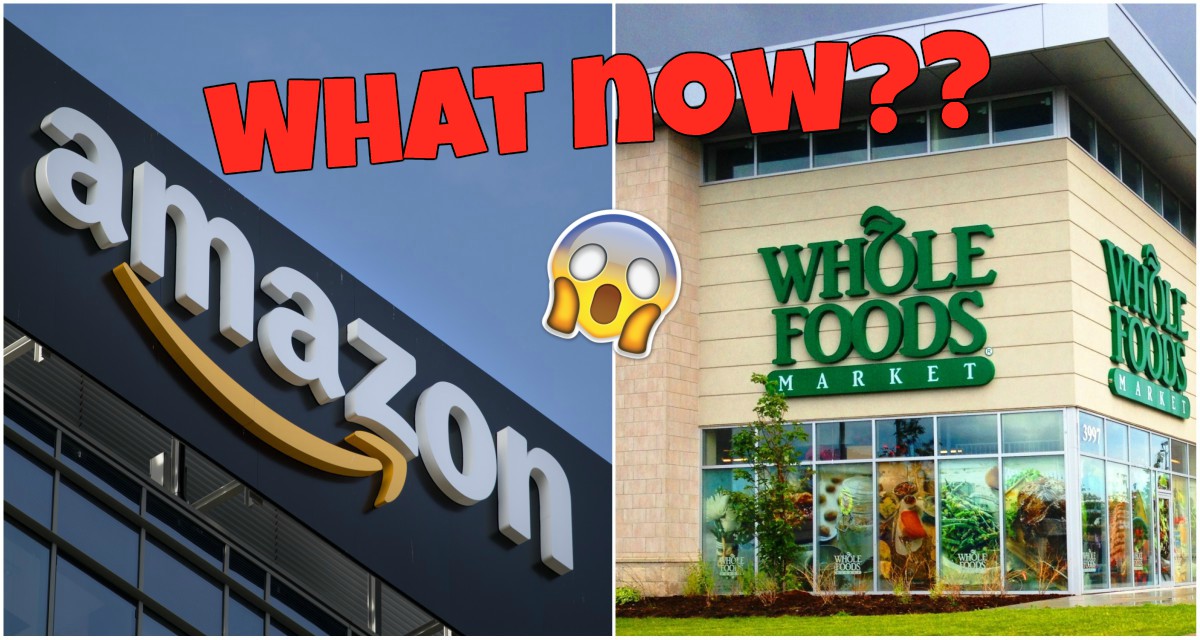Amazon-Whole Foods Merger: What You Should Know
Amazon just bought Whole Foods for $13.7bn. Where does that leave us consumers?

On June 16, Amazon announced it biggest deal yet. The e-commerce behemoth will acquire the Whole Foods supermarket chain for a whopping $13.7 BILLION.
If you're a frequent user of either company's services, you've probably been wondering about this deal and how it will impact you. Here's what you should know:
Why Whole Foods?
The merger will most likely tie Whole Foods, widely known for its quality organic products, with AmazonFresh, the company's online grocery delivery service. Unable to persuade the majority of its customers to buy perishables like meat and produce online, Amazon stands to make staggering profits by incorporating a grocery store chain into its growing empire.
The purchase of Whole Foods also positions Amazon to become THE main player in the supermarket industry, as well as overtake its Walmart competitors.
Amazon has also experimented with various brick-and-mortar storefronts in the past few years. You may remember AmazonGo, the physical store that would allow you to stop in and out with your purchases without waiting in a checkout line.
what it means for you
Don't panic! Your local Whole Foods will NOT disappear because of the merger. Whole Foods locations will continue to operate as usual, just as a subsidiary of the Amazon company.
The merger might even benefit you. Whole Foods is notorious for its high-quality, albeit expensive products. With Amazon's company creed of convience and efficiency, consumers could see Whole Foods prices go down.
In the long run, Amazon's purchase of Whole Foods may drastically change the way we buy groceries for good. The way we shop for food will get easier and more digitized, and delivery/pick-up services may become the new norm.
Interested? Discover more of our food news stories here.


 Past Contests
Past Contests
 International Team
International Team
 Christmas Countdown - 24 Days to go!
Christmas Countdown - 24 Days to go!
Comment on this article